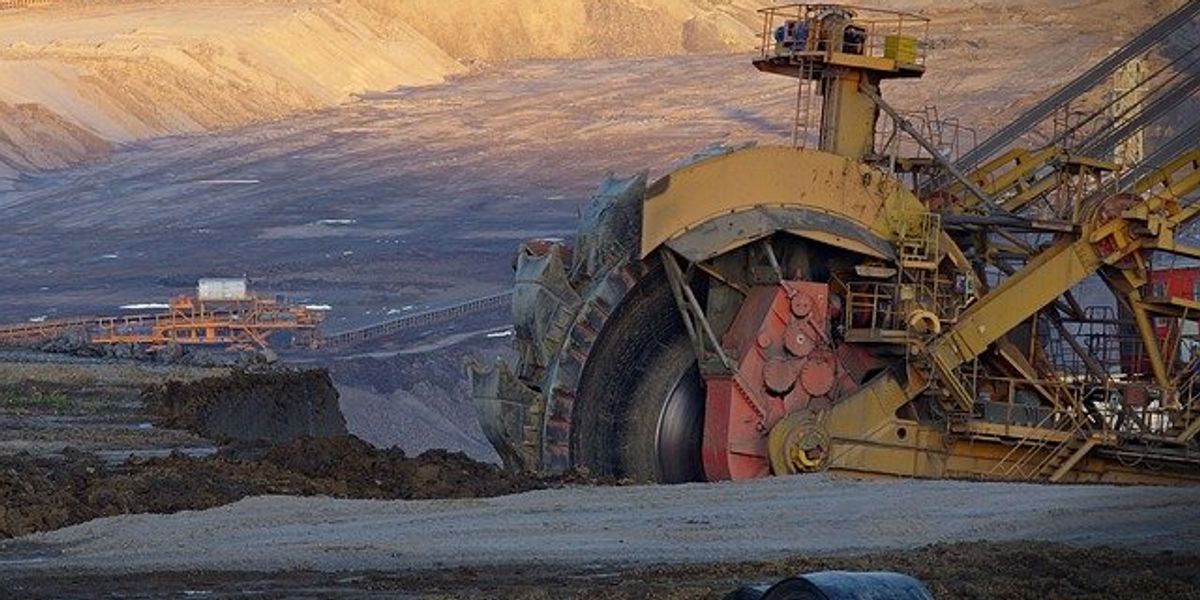
Weekend Reader: The green Father of the Groom
On this most festive of weekends, a little suspension of disbelief for one bridal parent's four-decade track record on the environment.
It's quite easy to write off Prince Charles as a well-meaning son, and father, of privilege. But he's been at this green thing for longer than many of you, dear readers, have been alive.
Highgrove, his country estate, went organic in 1986. His first statements on climate change were in 1990.
Of late, HRH has been railing on the "extremely grave and urgent "crisis of plastics in the oceans and the need to build food security through smaller, sustainable farming efforts. Last month, he traveled to Australia's imperiled Great Barrier Reef, renewing his call for a "blue economy" to save the world's threatened oceans.
This has, inevitably, made him a target for skeptics, including a few with fair questions about how much easier it is to be a sustainable Prince than a sustainable commoner. Shortly after President Trump's inauguration, an unnamed White House official warned Charles not to "lecture" Trump on climate change.
Also worth mentioning are the nearly 60 years of efforts by Charles's dad, the 96 year-old Prince Philip, the founding President of the UK affiliate of the Worldwide Fund for nature from 1961 to 1982. He's continued his role with WWF internationally since then.
Charles is 69. His mum, the longest-serving monarch in British history, is 92. Unless the old gal outlives her son, he'll shed his status as the longest-serving heir apparent and someday become King Charles III. He'll have the same actual power he does now, which is to say none at all. But His Royal Highness will, like the Pope, have a bigger megaphone. As President Trump likes to say, we'll see.
########
Two other stories jumped out this week as examples of the depth and entrenchment of both climate denial and the defense of fossil fuels.
For the latter, Inside Climate News reports that a North Carolina nonprofit has been thwarted by the state Supreme Court, who upheld a law barring anyone but the state's electric monopoly from selling power to end users. NC WARN had installed solar panels on a church roof with the promise of providing electricity to the church for less than half the cost they'd been paying to Duke Power.
And in Washington, Congressman Mo Brooks (R-Ala.) found a most colorful way to acknowledge that sea levels are indeed rising. A stalwart member of the House Committee on Science, Space and Technology, Brooks asked if rising seas might be caused by "soil and rocks" tumbling into the ocean from iconic places like the Mississippi Delta and the White Cliffs of Dover.
Really. He went there. A new climate denial meme is born. Kudos to the hearing witness, physicist Philip Duffy, for answering with a respectful straight face. Rep. Brooks's scholarship on climate issues is no doubt why he routinely gets re-elected in his northern Alabama district by margins of two-to-one or more.
Top Weekend News
From Quartz: The EU is planning to set an ambitious goal of zero carbon emissions by the year 2050.
From PRI's Living On Earth: Steve Curwood interviews Carey Gilliam on her reporting on glyphosate.
US fertility rates fell to a record low in 2017. (New York Times)
Another respected veteran of daily environmental journalism retires: Rocky Barker was the go-to guy for wilderness, wildfires, and much more for the Idaho Statesman for years.
The hurricane forecasters at Colorado State University anticipate a particularly hellacious Atlantic hurricane season this year.
A chemical plant explosion near Houston injured 20 workers, with one missing, on Saturday. (AP)
From James Bruggers for Inside Climate News: Plans for a massive solar farm on a mountaintop removal mining site get sticky.
Opinion pieces and Editorials
The conservative Weekly Standard likes what Scott Pruitt has done at EPA. But they still want him gone.
This op-ed from the Eugene (OR) Register-Guard says it all about the failed farm bill.
From the Irish Independent: Pesticides, climate change, and habitat loss conspiring to wipe out bee populations.
Veteran climate denier Fred Singer's recent Wall Street Journal op-ed on sea level rise is thrown to the dogs -- er, thrown to the actual climate scientists. The results aren't pretty. (Climate Feedback)
Podcasts of Note
Peter Sinclair's Climate Crock of the Week highlights the loss, then the restoration of NASA funding for carbon monitoring.
This week on PRI's Living on Earth, Peter Dykstra and host Steve Curwood go Beyond the Headlines to discuss China's high-rise hog farms and the salt water intrusion threatening one of California's most agriculturally productive lands.
Trump Rollbacks This Week
What could possibly go wrong? A former oil company spokesman whom some credit with coining the "Lock Her Up" chant at Trump rallies awaits confirmation as Administrator for EPA's west coast region. (Mercury-News)
Republicans' controversial farm bill fails due to an unrelated squabble over immigration. (NPR)
In the launch of a stunning new climate denial meme, Rep. Mo Brooks suggests that soil and rocks sliding into the ocean, not melting ice, could be causing sea level rise. (USA Today)
Elizabeth Shogren, on the release of the uncensored version of the National Park Service report on climate change. (Reveal/CIR)













